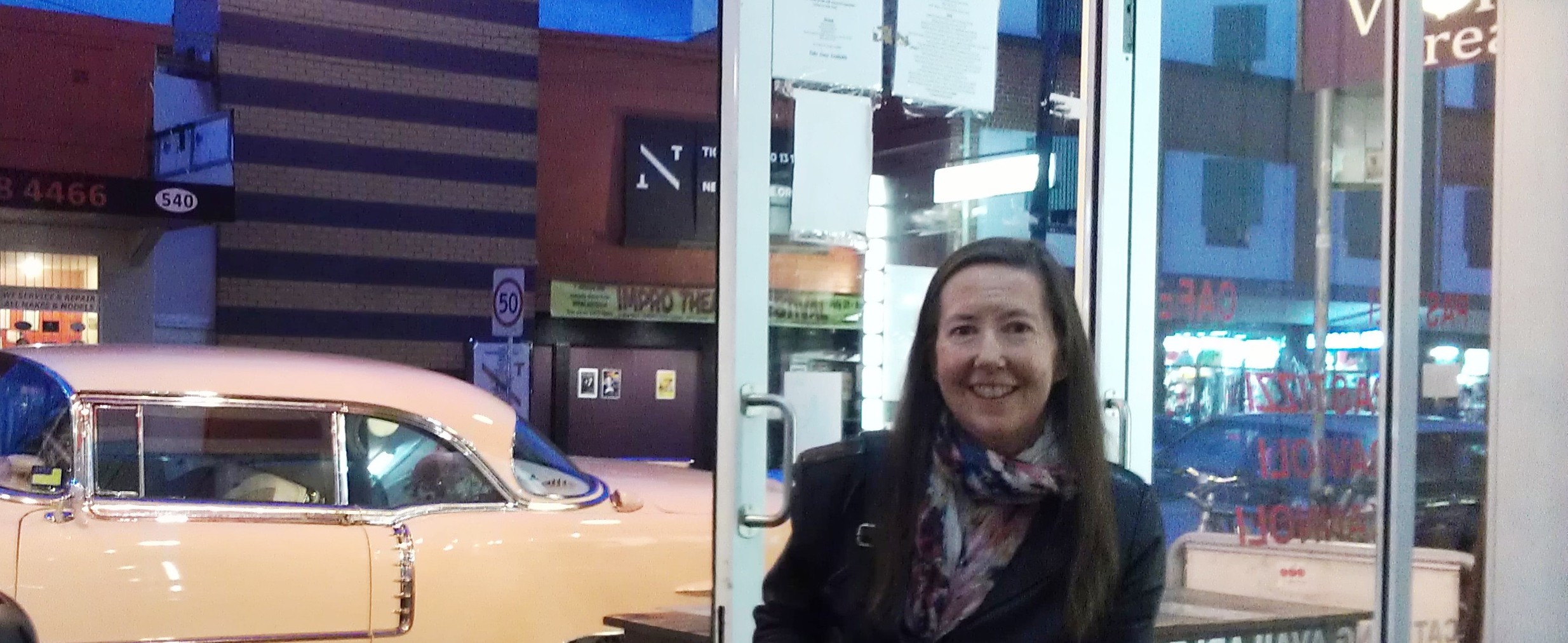What is your area of historical interest?
After working as a professional historian and heritage consultant since 1996, I completed my PhD at the University of Sydney in 2012. My thesis was titled ‘On “the Road”: A Cultural History’. It explored how roads beyond the urban and suburban setting have been imagined, experienced and represented in Australia from the late nineteenth century onwards. Roads are much more than a means of getting from A to B. They are invested with so many layers of history and symbolism – like Route 66, for example! Australia may not have an equivalent of Route 66, but roads like the Stuart Highway, Birdsville Track and Great Ocean Road have captured national and international imagination. They embody stories and journeys including Aboriginal songlines, paths of European exploration, stock routes, the travels of Afghan cameleers, missionaries and outback mailmen, the Overland Telegraph Line, World War 1 memorial and iconic tourist routes.
I like thinking about the way the meanings of place and space are culturally constructed, evolving over time through a combination of physical setting, design and planning, but also through experiences and representations in popular culture. I’m generally interested in cultural history, the history of travel and tourism, mobilities and how they intersect with cultural heritage.
Currently, I am particularly interested in the idea of ‘cultural routes’, a relatively new concept and category of world heritage and an emerging field of scholarship in Australia and internationally. Routes like the Silk Road or the pilgrimage way of Santiago de Compostela involve movement and exchange of people, goods and ideas over long time periods. So, as a ‘postdoc’ project I’d like to research and write about the ‘Hippie Trail’ – popularised in the 1960s and 70s, when travellers drove Kombi vans or hitchhiked overland from Australia to Europe and the UK via South-east Asia, the subcontinent and Middle East. Again, that is a fascinating multi-layered route that overlaps with sections of the old Silk Road, Spice Routes etc., with much cultural exchange.
What made you decide to pursue a career in history?
I started out in accounting but never really felt it was where I belonged. Just after I qualified as a Chartered Accountant I travelled to Europe and realised how much I didn’t know – especially about history. When I returned to Australia I enrolled in the Arts degree that everyone had said would be a ‘waste of time’. I wasn’t thinking of a career in history but while completing my honours I did some accounting and admin work for a PHA member, and thus found out more about the PHA and what professional historians do. That led to full time employment with Sue Rosen, who founded the consultancy, Heritage Assessment And History. Working in heritage and a wide variety of projects – including roads and bridges – eventually inspired the PhD topic. My experience as a professional historian informed and helped me enormously in writing the thesis.
Who is the audience for your history?
I write for both an academic audience and the broader public. I think it’s important to reach a wider audience, to try to promote interest and engagement with history and heritage among as many people as possible.
What’s your favourite historical source, book, website or film?
Lawrence Levine’s Highbrow Lowbrow stands out as a fascinating study that demonstrates how culture changes over time. He reveals how Shakespeare’s plays moved from ‘popular’ to ‘high’ culture as society transitioned from an oral to literary tradition.
If you had a time machine, where would you go?
I’d like to be able to travel the ‘Hippie Trail’ as it was in its heyday. I’d like to see places like Afghanistan that are now practically off-limits, and cultural heritage that has been destroyed by conflicts – like the Buddhas of Bamiyan. I’m not sure how I’d enjoy travelling rough in a Kombi though!
Why is history important today?
History is such a powerful discipline as it helps to understand the present. Listening to politicians or journalists, you often feel what’s missing is a sense of historical perspective.

What a fascinating summary of a truly alluring research topic. Good luck with the post doc – should be a book in the Hippie Trail project.
Such a pleasure to spend five minutes with you Rosemary. Your description of becoming an historian in such a natural transition, would connect with many people. I agree with you wholeheartedly about the importance of communicating history with a wider public and offering a sense of perspective on current events – so often missing in contemporary discourse. Well done!
I hope the thesis will be published. It is a really important contribution to Australian cultural history.
Nice to see Lawrence Levine’s book referenced – I realise I have no idea where my copy has gone. Great PhD topic for future work Rosemary. Thanks
Thanks I really enjoyed your story Rosemary, good luck with the new research it sounds very interesting and thoughtful